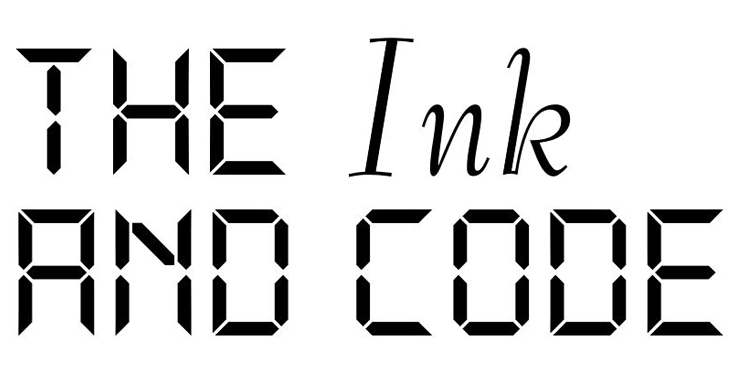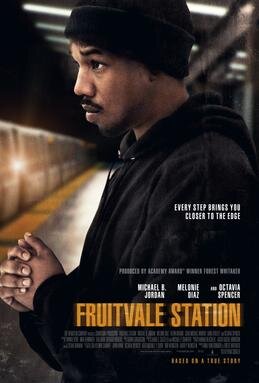A while back, famed filmmaker Terry Gilliam had the following to say about Ryan Coogler’s Black Panther in an interview with Indiewire:
“I hated ‘Black Panther.’ It makes me crazy. It gives young black kids the idea that this is something to believe in. Bullshit. It’s utter bullshit. I think the people who made it have never been to Africa,” he said. “They went and got some stylist for some African pattern fabrics and things. But I just I hated that movie, partly because the media were going on about the importance of bullshit.”
As soon as I read his statement, my blood began to boil. If Mr. Gilliam wanted to trash on the current era of superheroes films, by all means, he should go for it. But there was something targeted, spiteful, and ultimately ignorant about his focus on Black Panther and the choice of words for his criticism. I struggle to reconcile how the person who made accomplished works like Brazil, 12 Monkeys, and Fear & Loathing in Las Vegas could be so far off the mark. Was it bigotry showing? Or just cranky old age? Both? A filmmaker like Ryan Coogler doesn’t need my defense, but I have a bone to pick with Gilliam.
In and of itself, Black Panther is a highlight of the current slate of superhero films. It was a cultural zeitgeist not seen since Tim Burton’s Batman in 1989, but with an additional cultural relevancy (and cultural urgency) the likes of which we haven’t seen. But more than that, in my opinion, it is a beautiful concluding chapter in what I consider to be a thematic trilogy by Coogler and lead actor Michael B. Jordan.
Their first collaboration and Coogler’s first film, Fruitvale Station, was inspired by the tragic true story of the murder of Oscar Grant by a police officer in Oakland on New Years Eve. Coogler artfully takes us through Grant’s day leading up to harrowing encounter at the Fruitvale BART station. Grant is depicted warmly, a person who has struggled but is trying to do right. He didn’t deserve his fate and it’s gut-wrenching to witness. Oscar Grant stood for any young black man who was a victim of circumstance and an unjust system that viewed him as a danger. The parallels are clear with the scene earlier in the film in which Grant attempts to take care of an injured pitbull left in the street. Grant’s calls for help for the dog were ignored. Perhaps a heavy-handed analogy, it nonetheless conveyed Coogler’s feelings about Grant’s death and how the world at large viewed young black men. And while I do not wish to put words in Coogler’s mouth, I can’t help but wonder if the use of the fictional character Katie—a young white woman that Grant encounters earlier in the day while trying to get his job back at a supermarket. Katie, who later inadvertently sets off the chain of events that leads to his death—must have at least some connective line to the murder of Emmett Till, whose sole transgression was talking to a white woman in a grocery store. It speaks to an anxiety I can imagine African Americans might have in their everyday interactions with white people. In all, Fruitvale Station was a powerful first film, with Coogler firmly announcing himself as a filmmaker while speaking about the experience of some young African American men in America (I am not going to be foolish enough to assume that young black men are monolothic and share the same experiences).
Coogler chose to follow up Fruitvale Station with Creed, a bold new installment on the beloved Rocky franchise. When we first meet the lead, Adonis “Donnie” Johnson, he is a child, already incarcerated. The scenes in the juvenile detention center are strikingly similar to the scenes of Oscar Grant incarcerated. Donnie is rescued from his imprisonment, told that his father was the greatest boxer who ever lived, Apollo Creed, and whisked away to live in a mansion. It’s an American fairy tale realized.
Coogler has a love of the Rocky franchise and uses the lore of those films to great success. There’s a daringness to elevating Donnie to the status of Rocky, who is one of the greatest pop culture characters of the 20th century. Before you balk at that statement, ask yourself, how many fictional characters have a statue erected in a major city to this day? Rocky is up there with Superman as cultural icon. And like Superman, he happens to be white. There’s some uncomfortable racial politics to the early Rocky films, with the lead presented as a great white hope. Coogler acknowledges and reframes that. Early on, Apollo Creed is repositioned as the superior boxer, with Rocky acknowledging he’s the best. If the inspiration for Rocky was Chuck Wepner’s famous fight against Muhammad Ali, it’s important to recognize that we still talk about Ali as the greatest of all time, and Wepner is ultimately a footnote in his story. With Apollo Creed firmly repositioned, Donnie’s story of becoming his own man and wrestling with his fairy tale beginnings can proceed. It’s a rousing story that ends with Donnie standing side-by-side with Rocky Balboa, looking out toward a bright future. There’s an earned bravado to Coogler’s filmmaking in Creed. If you’re going to give young black men a myth of their own and show the rest of the world the necessity of such a character, placing him beside Rocky as an equal is a bold approach that Coogler landed expertly.
These complementary/contrasting shots in Creed exemplify the hope Coogler’s storytelling provides.
That brings us to Black Panther. The most generous defense I can give to Terry Gilliam’s unfortunate criticism is that he was right the film didn’t represent Africa. I do not believe it was meant to represent any of the many diverse regions of the continent. Instead, Wakanda was meant to be a far away hope which some black children in America only knew as legend. Coogler inverted the fairy tale he presented in Creed, using it as poison to shape the ideology of Michael B. Jordan’s villainous character, Killmonger. The son of murdered Wakandan royalty, Killmonger had solely an American upbringing. Like Donnie in Creed, he was orphaned young. Growing up in Oakland, like Oscar Grant in Fruitvale Station, it’s also not a stretch to assume to he spent some of his youth incarcerated. As a child, he was told the stories of Wakanda, the fantasy of an African utopia to which he doesn’t have access, and he grew to resent being denied it. He was the cautionary tale of putting too much faith in a fantasy and letting it lead you astray. While T’Challa, the hero of Black Panther, wanted to protect Wakanda’s greatness from the rest of the world, Killmonger wanted to wield it to benefit those like him, those who were treated unjustly in their lives. He readily acknowledged his foolishness for believing in the Wakanda fairy tale and the false hope it gave a kid like him from Oakland. But that honesty helped T’Challa realize the error of his own ways, and the need to be a hero to everyone, not just the kingdom of Wakanda. The film ends with T’Challa opening the first Wakandan embassy, in Oakland of all places, to the awe of local children. They now had a hero they could look up to in Black Panther and access to the glory of Wakanda in their own backyard, in part due to one of their own helping open T’Challa’s eyes.
That isn’t bullshit, to use Gilliam’s words. It’s important and it’s necessary. Coogler is telling stories for black children who want to aspire to be something great. He tackles both sides of the coin, depicting the glorious rise and how the fantasy can be corrupted, but he ultimately shows how to persevere. They are stories for every child fears becoming the next Oscar Grant, Tamir Rice, or Trayvon Martin. They are a promise of a bright and glorious future.
I can never presume to understand the complexities of the African American experiences, but I can thank Ryan Coogler and his vast group of collaborators for sharing such things with me. I am a better person for it. Terry Gilliam could be too if he opened his heart and mind to something he clearly doesn’t understand.





